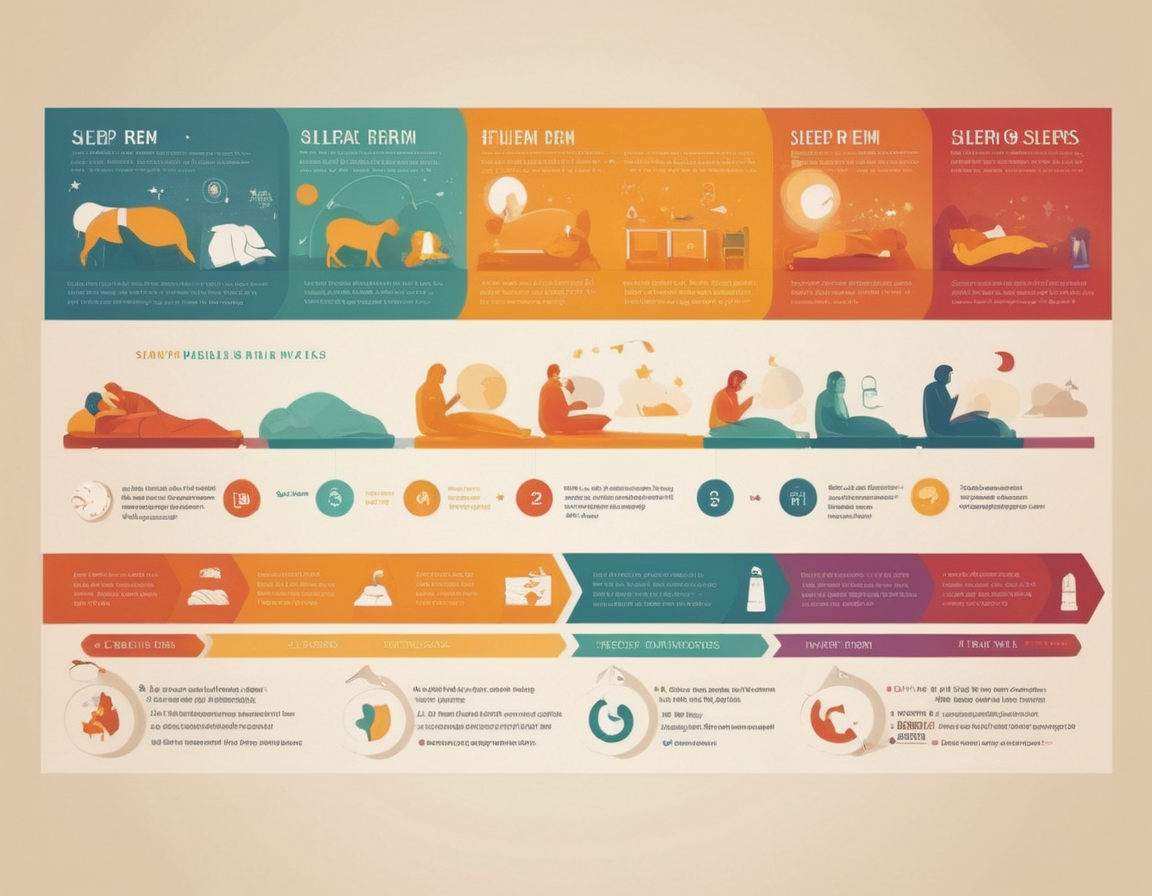Exploring the Science of Sleep: Unraveling the Secrets of Slumber
The Mystery and Science of Sleep
Sleep, a phenomenon as common as it is complex, has fascinated scientists and philosophers for centuries. In today’s fast-paced world, understanding the intricacies of sleep has become more important than ever—with implications for health, productivity, and quality of life. Let us delve into the enigmatic world of sleep, as we summarize key points from a comprehensive Wikipedia article on this vital biological function.

What is Sleep?
Sleep is a naturally recurring state of mind and body, characterized by altered consciousness, relatively inhibited sensory activity, reduced muscle activity, and inhibition of nearly all voluntary muscles during rapid eye movement (REM) sleep. It is distinguished from wakefulness by a decreased ability to react to stimuli, but more reactive than a coma or disorders of consciousness, displaying very different and distinct stages.
The Stages of Sleep
Sleep is not a uniform state, but rather, cycles through various stages throughout the night, which include Non-REM and REM sleep. Non-REM sleep consists of three distinct stages: N1 (light sleep), N2, and N3 (deep sleep). REM sleep, on the other hand, is where most of our dreams occur. Each cycle of these stages lasts approximately 90 minutes, with a typical adult experiencing four to six cycles per night.
Why Do We Sleep?
The exact reasons for sleep remain a topic of research, but several theories have been proposed. These include the restorative theory, which suggests sleep allows the body to repair and replete cellular components necessary for biological functions. Additionally, there’s the evolutionary theory that posits sleep increases an organism’s chances of survival by keeping it out of harm’s way during periods of vulnerability. Sleep also plays a critical role in brain function and well-being, participating in memory consolidation, and cognitive maintenance.

Health Implications of Sleep Deprivation
Lack of sleep can have significant short and long-term health consequences. These range from cognitive impairments, such as attention lapses and reduced coordination, to more severe health issues like heart disease, obesity, and diabetes. Chronic sleep deprivation has also been linked to negative mental health outcomes, including stress, anxiety, and depression.
Advancements in Sleep Research
Recent advancements in technology, such as polysomnography and actigraphy, have allowed researchers to collect data on sleep patterns and quality. These tools have provided insights into disorders such as insomnia, sleep apnea, and narcolepsy, leading to better diagnosis and treatments. Understanding sleep genetics is another area that has seen growth, shedding light on the heritability of sleep disorders and chronotypes.
Tips for Better Sleep
Practicing good sleep hygiene is crucial for a restful slumber. This includes maintaining a regular sleep-wake schedule, creating a comfortable sleep environment, limiting exposure to screens before bedtime, and avoiding caffeine and large meals close to bedtime. Additional measures such as relaxation techniques and sleep aids may also be beneficial for those with difficulties falling or staying asleep.

Conclusion
In conclusion, sleep is a multifaceted and essential part of human life. Through various stages, functions, and implications for health, the science of sleep continues to unravel its mysteries, providing us with valuable information on how to optimize our sleep for better well-being. As research forges ahead, we may soon find new answers to the age-old question—why do we sleep?
Now that you’ve got a glimpse of the incredible science of sleep, remember that getting enough quality slumber is a pillar of healthy living. Make it a priority, and sweet dreams!







